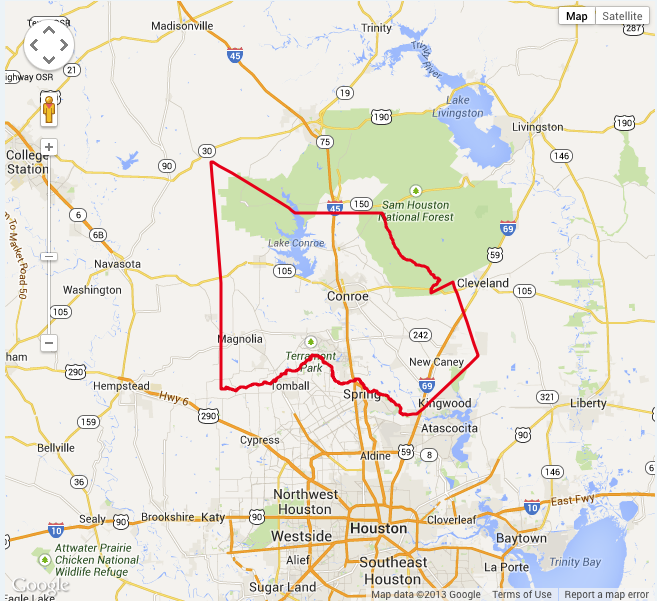
|
US Vote SmartHome » 2018-03-06 Republican primary » Montgomery County » County Court at Law 3 |
| County Court at Law 3 | |
|---|---|
 Montgomery County |
County Court at Law 3
office
General Discription (Wikipedia)
There is a County Court for each of the 254 counties in Texas. The Texas Constitution states that "[t]here shall be established in each county in this State a County Court ..." Sections 15 through 17 of Article V, as well as Chapters 25 and 26 of the Texas Government Code, outline the duties of these Courts and their officers. The Montgomery County Courts at Law structure can be found here.
The county court has exclusive jurisdiction over "Class A" and "Class B" misdemeanors (these offenses can involve jail time), concurrent jurisdiction over civil cases where the amount in controversy is moderately sized, and appellate jurisdiction over JP and municipal court cases (for municipal court cases, this may involve a trial de novo if the lower court is not a "court of record").
Section 15 states that the County Court shall be a "court of record". Section 16 states that the County Court "has jurisdiction as provided by law"; Section 17 states that the County Court shall hold terms as provided by law and that County Court juries shall consist of six persons, but in civil cases a jury shall not be empaneled unless one of the parties demands it and pays a jury fee or files an affidavit stating that it is unable to do so.
Since the county judge is also responsible for presiding over the Commissioners Court (the main executive and legislative body of the county), in 94 counties the Texas Legislature has established county courts at law to relieve the county judge of judicial duties. In most counties with courts at law, the civil and criminal jurisdiction of the constitutional county court has been transferred to the county courts at law. Unlike the county judge, judges of the county courts of law are required to be attorneys. The county courts at law may hear both civil and criminal matters, or hear them separately, depending on how the Legislature has structured them
Similarities and Distinctions Between District and County Courts at Law
Both County Courts at Law and District courts hear family cases (child custody, CPS, child support, divorce).
Both county courts at law and district courts hear civil cases (contract, car wrecks, medical malpractice, debt collection, etc.); however, county courts at law are limited to cases involving under $200,000 in damages.
Both county courts at law and district courts hear criminal cases (where there has been an arrest); however, county courts at law hear misdemeanor cases (lower level crimes such as DWI, simple assault, marijuana) with punishment as incarceration in the county jail whereas district courts hear felony cases (more serious crimes like murder, burglary of a home, sexual assault, etc.) with punishment as incarceration in the penitentiary.
County courts at law hear all cases appealed from the JP courts, whereas district courts do not serve as courts of appeal.
County courts at law hear all probate cases (wills, estates, guardianships) & condemnation cases (taking of property by government) whereas district courts in Montgomery county do not hear these types of cases.
County courts at law and district courts both hear juvenile cases. It has been more often that a county court at law judge serves as our juvenile judge, though.
http://www.mctx.org/departments/departments_a_-_c/county_courts/index.php
